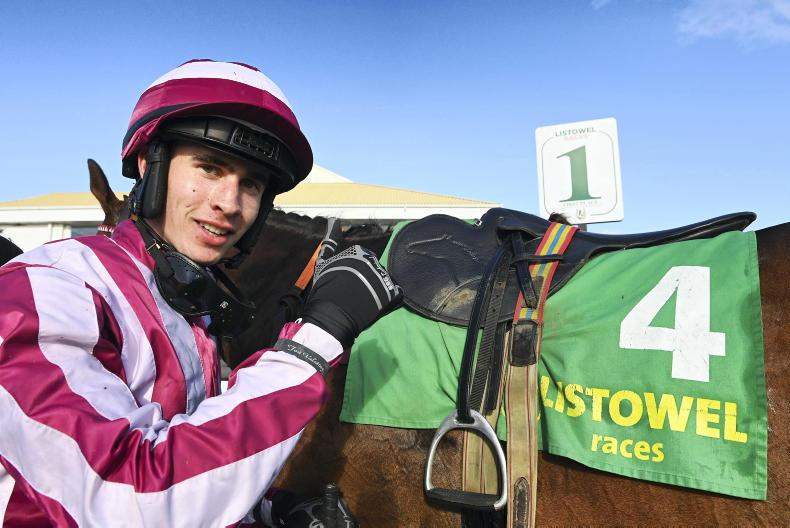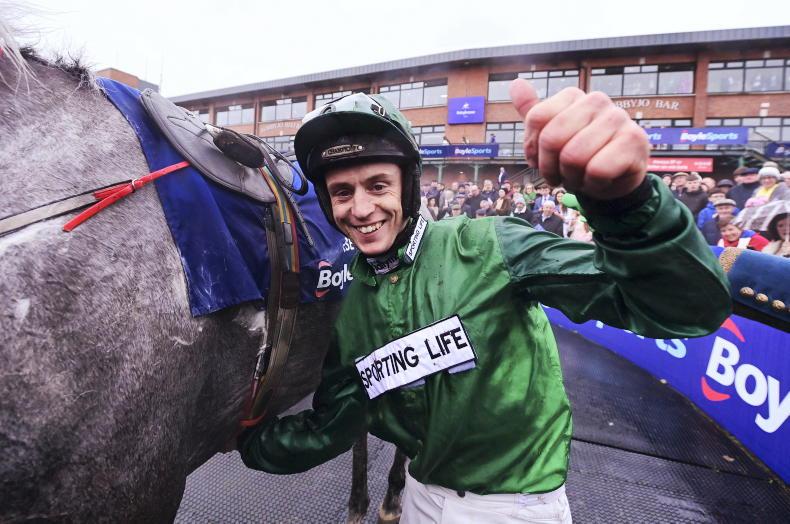In November, Betfair launched its one-of-a-kind charity initiative, the ‘Rachael Blackmore - Serial Winners Fund’, to benefit both the Injured Jockeys Fund and Irish Injured Jockeys. The fund currently stands at £180,000 and is expected to reach £250,000 by Grand National Day, Saturday, April 13th, when the fund will draw to a close. This weekly column seeks to shed some light on how jockeys have, and will continue to benefit from, the work the IIJ and the IJF do, and some of the services this contribution will support.
Tell us about an experience where mental strength played a crucial role in overcoming a challenging situation in your career to date.
No particular experience stands out, but in every race you rely on mental strength. You have to keep moving forward and always think positively. After a poor race it’s important to convince yourself you’ll learn from it and that you will not make the same mistake again.
You have to find out why you made each mistake and move on. It is important to remember that you can’t change the past
How do you maintain focus and stay resilient amid all the highs and lows?
I like to do the same thing for every racemeeting. I like to get to a track nice and early, and if I have the time I’ll walk at the track or at the least have a look at the ground. After this I like to look through the form and to work out where the pace will come by chatting to the lads.
What techniques do you use to manage stress and pressure before and during a race?
The main thing is to control the controllables. Knowing the horses, jockeys and trainers helps to put my mind at ease. I like to look at the fancied horses and see how they have been ridden before. When I haven’t ridden the horse I am riding before, I will watch their replays to learn about them too.
Once I am on the horse, I am in the zone and can only react to any situation as it comes.
How has the ability to bounce back from disappointments contributed to your overall success as a jockey?
I hate getting things wrong and also I hate getting beaten on a horse that should have won. If I make a mistake in the last race of the day, I look forward to the following day, where I will try my best to bounce back by giving the next horse a good ride.
Once a race is finished and I’ve made a mistake I can only hope that I get the chance to ride the horse again, and to right the wrong.
Are there specific mental exercises or routines you practice to enhance your mental strength?
I don’t really do any specific exercises but routine is important, especially when racing. I like a routine, getting to the track early, to get organised, et cetera.
I like to think about each track. I have learnt a lot about the tracks over the years. It is very important to know where you wanna be at certain points, depending on how the horse is ridden.
Can you recall a race where maintaining a positive mindset was pivotal to winning?
When I rode Seamus Nolan’s horse, Notice To Close, at Punchestown last season, Seamus gave me a very detailed and specific instruction. I went out and followed it word-for-word and it ended up winning.
I was told to be positive on him and to ride him very handily. I really stuck to the game plan and I believe it was the difference between winning and losing that day. Over the years, I have learnt that the trainer knows his horses better than anyone else.
How do you handle the weight of expectations, both from yourself and others?
The main thing is to have yourself prepared in the best way you can, both mentally and physically. I try to take on board what people are saying to me, to do my homework and give it my best shot. All I can do is try to make the best decisions I can in any scenario at any given time.
Are you a naturally confident person or is that something you have to work hard at?
I would say that I have to work at it. Around horses I would be quite confident, but outside of that I wouldn’t be mad for meeting new people.
In terms of the media, it helps when you know the person interviewing. When people are in the media for the right reasons I am more than happy to speak to them.
What do you do to switch off?
My Dad trains and breaks a few horses in Wexford, so when I’m not racing I ride out there and go straight back there in the afternoon. I really enjoy schooling and breaking them, as well as jumping point-to-pointers and trying to progress them to the next level
During my month off last year in June I went to Royal Ascot for a day and headed over to the Prix de Diane at Chantilly. This year I have been thinking about heading over to Australia during the break.
What message would you give to someone who is struggling to cope with pressure or disappointment in their professional life?
I suppose the main thing is to come up with a way that helps you to cope with things and just to learn to move on. Try to build a good group of good people around you to support you and to talk to. However, it is always important to be careful about who you talk to as well.
Have you ever availed of support from the Injured Jockeys Fund or Irish Injured Jockeys?
Yes, I have. Unfortunately I broke my collarbone at the Galway Summer Festival one year and frustratingly didn’t get back until October. During the time I spent rehabbing and recovering, they were always there to support me through it.
I recently went to a sports psychology workshop in the Horse and Jockey in Thurles and really enjoyed it; it really resonated with me. Working with sports psychologists has been shown to be beneficial in other sports, like in 1996 when Wexford won the All-Ireland Hurling Final. They were way ahead of their time with a sports psychologist.
Web: betting.betfair.com/horse-racing/serial-winners


 This is a subscriber-only article
This is a subscriber-only article
 It looks like you're browsing in private mode
It looks like you're browsing in private mode










SHARING OPTIONS: